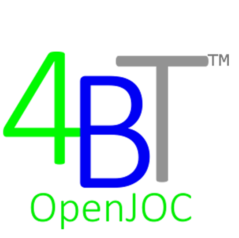The design-bid-build method, and even design-build are relatively inefficient and inappropriate to deal renovation, repair, and deferred maintenance backlogs.
Today Job Order Contracts, after having been largely perfected by the U.S. Air Force, have moved into the broader government and public sectors, including state, county, and local government, education, healthcare, utilities, and transportation.
A Job Order Contract Request for Proposal is a BEST VALUE procurement strategy. Rather than a low-bid approach, JOC considers, in fact, requires contractor collaboration and performance. A JOC program can reduce overall procurement costs and total project delivery times, as well as improve quality.
Job Order Contracting:
A competitively bid, open ended, indefinite-delivery indefinite-quantity contract and LEAN collaborative construction delivery method, providing for firm fixed pricing, based on a detailed joint scope of work, a unit price book and a predetermined coefficient for the purpose of managing and completing complex multi-trade renovation, repair, rehabilitation and minor construction projects more efficiently.
Obtaining greater earned value requires consideration of non-cost factors, and greater competency and capabilities among all participants. Thus a Job Order Contract is NOT for everyone.
The ability to work collaboratively, transparently, on-demand, and safely defines those participating in a Job Order Contract.
As a Job Order Contract is performance-based, successful performance is a key determining factor for delivery orders issued by the owner. A JOC contractor is thus motivate to provide greater value-added services to the owner at no additional cost. These include project scoping during budget cycles, incidental design work and value engineering.
The real property owner and contractor to build a long-term relationship based on collaboration and trust. Thus when structuring a Job Order Contract is it critical to clearly define Owner and Contractor expectations.
- Unit Price Book & Transparent Costs: Detailed line item Unit Price Books allow the owner to better communicate work scope to contractors, and have complete cost visibility. Contractors provide detailed costs estimates using the unit price book for owner review and approval. This workflow and required documentation and approval process is clearly defined in the Job Order Contract. The Job Order Contract specifies the Unit Price Book to be used, how it will be used with respect to price and non-priced line items, and update frequency.

Timing: The Job Order Contract Request for proposal clearly defines for the initial contract and option years, as well as timelines associated with individual JOC projects and/or JOC task orders. Most Job Order Contracts are structured for one year, with up to four options years.
Job Order Contract Management System: While not the driving factor, software is key to the collaborative implementation of a Job Order Contract. Cloud-based software is particularly appropriate in this regard. Both the Owner and the awarded JOC Contrators must have thee appropriate technical capabilities to use the designated JOC cost estimating and project management software.
Job Order Contract Construction Volume: A Job Order Contract clearly specifies anticipate annual construction volume as well as minimum and maximum values for the overall contract as well as for individual JOC projects/task orders.
Type of Work: A Job Order Contract Request for Proposal clearly specifies the type of construction work to be performed, as well as work hours, and any special conditions.
Geographic Location: A Job Order Contract Request for Proposal clearly specifies the location(s) where work is to be performed.
Additional Key Items: The Job Order Contract Request for Proposal also highlights additional requirements such as liquidated damages, design requirements, reimbursement and self-performance requirements.
Single or Two Step Process: Based upon applicable regulations, Job Order Contract services procurement is single-step – qualifications/evaluation criteria and the price components are combined and reviewed, or two step process – pricing is consider only after a qualifications review and short-list selection.
